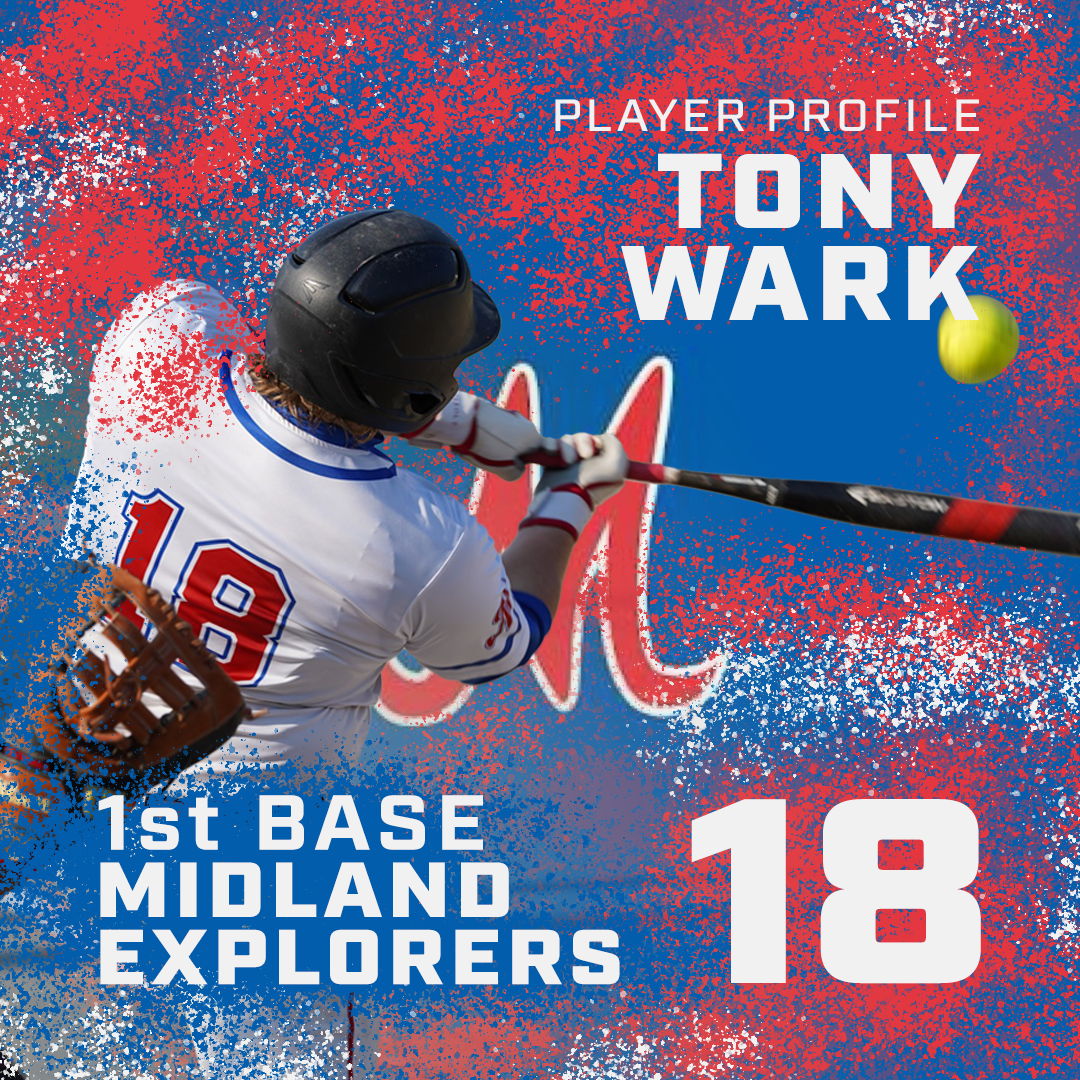Tony Wark: From Little League to the Big Leagues of Men’s Fastpitch
With a baseball background and a hockey stick in one hand, Tony Wark stumbled onto the fastpitch diamond at age 12—and hasn’t looked back since. Now 25, he’s a mainstay at 1B for the Midland Explorers, where he proudly wears jersey #18. Hailing from Reese, Michigan, Tony’s early days with the Munger Firemen youth team have led him to the heights of men’s fastpitch, fueled by an unmistakable passion for the game.
An Unexpected Introduction
Tony’s journey began almost by accident: “I was playing Little League and noticed a fastpitch game in progress at our local ballpark,” he recalls. “My dad and I wandered over, and the guys let me jump in for an at-bat. I connected on that pitch, and right then, I fell in love with the speed and energy of fastpitch.”
That spark grew quickly. By 2018, Tony found himself on the U19 Junior USA Team, impressed by the travel opportunities and tight-knit brotherhood the sport offered.
Family and Mentors
While many players look up to global icons, Tony’s biggest supporter has always been his older brother. “He played fastpitch, too,” Tony says. “He was there day in and day out pushing me to be better, on the field and off. My parents also made huge sacrifices so I could play sports. Their support shaped who I am.”
He also credits Jon Gwizdala as someone who’s constantly challenging him. “I get to face or play alongside Jon every game. That kind of competitive environment forces you to raise your level.”

Challenges and Goals
Transitioning from baseball to fastpitch, Tony had to adjust to the new pace. “The speed and movement of pitches is unlike anything in baseball,” he points out. Now more experienced, he’s focused on raising his OBP, becoming a “more consistent middle-of-the-lineup hitter,” and ultimately helping the Midland Explorers win a tournament.
Confidence is still a hurdle. “I sometimes struggle with that part of my game,” Tony admits. “But the key is trusting my training and the foundation of our team.”
The ISC Experience
Competing in the ISC World Tournament is the culmination of countless hours spent grinding through the summer. “It’s an all-summer process,” he explains. “From the first game to the ISC, you focus on getting a little better each day.”
The level of play, he says, is on another planet. “You’re literally up against the best of the best. My most memorable moment has to be my first ISC hit—a home run—last year in Surrey. I’ll never forget that swing.”
For newcomers to the ISC, Tony’s advice is simple: “Take it in. It’s a special week. You’re there among the elite for a reason.”
Looking Ahead
When he’s not patrolling first base, Tony enjoys hockey, golf, and fishing, and he keeps busy with his day job as a truck driver and farmer. As for the future of men’s fastpitch, Tony sees a mixed picture. “Internationally, the sport is growing, and the competition’s strong. Locally, it’s on a bit of a decline—mostly due to a shortage of quality pitchers. But I’m hopeful it can stay steady, especially if young players keep discovering how exciting this game is.”
He believes that increased visibility—on TV, in local media, and through organizations like the ISC—can help the sport gain momentum. “When people see how thrilling fastpitch is, they’ll come out and give it a try, just like I did.”
Follow Tony Wark
To keep track of Tony’s adventures with the Midland Explorers:
Instagram:
@tonywark18
Facebook:
Tony Wark
X (formerly Twitter):
@tonywark8813
From discovering fastpitch by chance to slugging home runs on the ISC stage, Tony Wark embodies the passion and resilience that define this global sport. Keep your eyes on the diamond—he’s just getting started.


